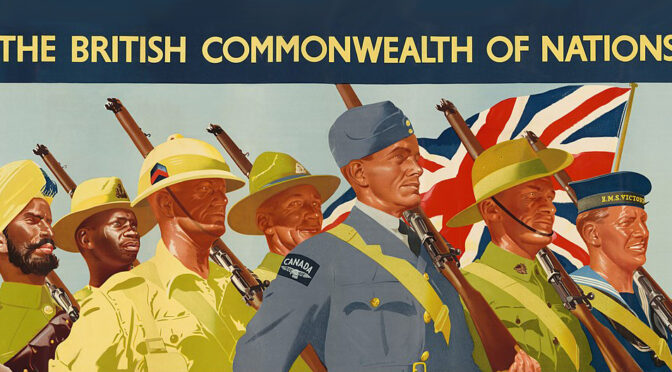Article published in The Daily Telegraph, 11 March 2020. © Richard Kemp
Private Joseva ‘Lewi’ Lewaicei, a soldier from my regiment, the Royal Anglians, was killed in Basra in 2006 by a roadside bomb, alongside his comrade Private Adam Morris. Lewaicei, who had a seven-year-old daughter, previously served in Northern Ireland, Afghanistan and Jordan and was a regimental boxer and rugby player. With a great sense of humour, he was the life and soul of his platoon.
Lewaicei was from Fiji, one of many Commonwealth soldiers serving in the British Army. On Monday, at a service in London commemorating the contribution of the men and women from Commonwealth countries who have fought for the Crown, Baroness Scotland, the Commonwealth Secretary General, said: ‘I salute their legacy, manifested in our shared values, which guides us all to follow their example of duty in the service of humankind.’
Today, however, our country is failing in its duty to Commonwealth soldiers who have fought for us in Afghanistan and Iraq. Hundreds, perhaps thousands, of former troops whose service entitles them and their families to live here after they are discharged have been forced to leave or to live as fugitives. Their situation can be compared to UK citizens of the Windrush generation and, as with Windrush, responsibility lies firmly at the door of the Home Office bureaucracy.
Throughout a 30-year career I served alongside many Commonwealth troops like Lewaicei, who made staunch and often courageous contributions and several became close friends. During a recruiting crisis in the late 1990s, we turned to the Commonwealth to fill the ranks of fighting troops and they unhesitatingly answered the call. Renewed recruiting drives have seen ever more Commonwealth soldiers signing up. As with their Gurkha comrades, service in the British Army, often a family tradition, is seen as a privilege and an honour.
It is not possible for any person to contribute more to this country than giving up his own life like Lewaicei and so many other Commonwealth soldiers. We should give them our absolute respect. We should also show our unfailing gratitude to all who volunteer to put their lives on the line, to risk willingly the same sacrifice as those who are killed. Perhaps we should show even greater gratitude to those who travel across the seas to fight for us.
Unfortunately the opposite seems to be true. Home Office regulations allow Commonwealth troops indefinite leave to remain here after they have completed at least four years’ service, but they must complete a complex application process. Many claim they are not briefed on the requirements, which MOD procedures demand, and subsequently fall foul of the system leading either to their own unwilling departure or deportation. Some remain here illegally and feel obliged to take refuge in the black economy, giving up jobs, avoiding the authorities and afraid to seek medical attention for fear of being detained.
Others are unable to pay visa application costs which amount to around £10,000 for a family with two children, unaffordable for most whose meagre military salary allows little opportunity to save.
A particularly egregious case involves Ilaitia Cokanasiga, a former sergeant who served 14 years including action in Afghanistan. His two sons are England rugby internationals and he is back in Fiji, unable to return because of immigration rules, even to care for his wife who is undergoing cancer treatment here.
Many people who have never made any contribution to this country are able to settle in Britain, frequently bypassing formal immigration processes. It is particularly galling to contrast the plight of Commonwealth soldiers who have fought to defend us with that of jihadists who have sought to murder us while members of groups such as Islamic State and Al Qaida are showered with legal aid funding to avoid deportation or loss of citizenship.
There is a very simple two-step solution to this situation that the Government should immediately implement. First, the Home Office should waive visa charges for former servicemen who have already contributed so much to us. Second, the MOD should be responsible not just for briefing soldiers on the processes they need to follow when they are discharged, but also to provide active assistance, coordinated with the Home Office, to ensure they are able to successfully complete the processes.
Inscribed on the Commonwealth Memorial where Baroness Scotland made her speech on Monday are Ben Okri’s words: ‘Our future is greater than our past.’ As with the Windrush generation, I urge the Government to make this a reality by overturning the terrible injustice to our loyal Commonwealth troops.

